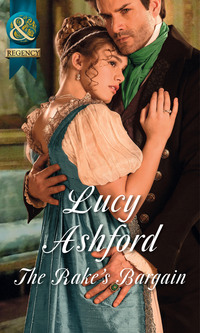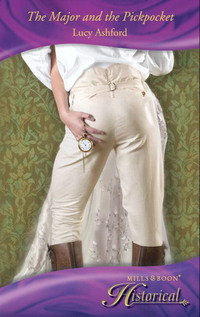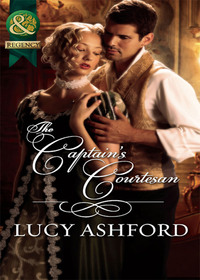
Полная версия
One Night with a Regency Lord

One Night with a Regency Lord
Reprobate Lord, Runaway Lady
Isabelle Goddard
The Return of Lord Conistone
Lucy Ashford

MILLS & BOON
Before you start reading, why not sign up?
Thank you for downloading this Mills & Boon book. If you want to hear about exclusive discounts, special offers and competitions, sign up to our email newsletter today!
SIGN ME UP!
Or simply visit
signup.millsandboon.co.uk
Mills & Boon emails are completely free to receive and you can unsubscribe at any time via the link in any email we send you.
Table of Contents
Cover
Title Page
Reprobate Lord, Runaway Lady
Excerpt
About the Author
Dedication
Chapter One
Chapter Two
Chapter Three
Chapter Four
Chapter Five
Chapter Six
Chapter Seven
Chapter Eight
Chapter Nine
Chapter Ten
Chapter Eleven
Chapter Twelve
The Return of Lord Conistone
Praise
Excerpt
Dedication
About the Author
AUTHOR NOTE
Prologue
Chapter One
Chapter Two
Chapter Three
Chapter Four
Chapter Five
Chapter Six
Chapter Seven
Chapter Eight
Chapter Nine
Chapter Ten
Chapter Eleven
Chapter Twelve
Chapter Thirteen
Chapter Fourteen
Chapter Fifteen
Chapter Sixteen
Chapter Seventeen
Chapter Eighteen
Chapter Nineteen
Chapter Twenty
Chapter Twenty-One
Chapter Twenty-Two
Chapter Twenty-Three
Chapter Twenty-Four
Chapter Twenty-Five
Chapter Twenty-Six
Chapter Twenty-Seven
Chapter Twenty-Eight
Epilogue
Copyright
Reprobate Lord, Runaway Lady
Isabelle Goddard
‘A maidservant who speaks French as well as having a French name! It becomes more and more intriguing.’ Gareth looked searchingly at Amelie.
‘I’d hardly say that I spoke French,’ she said, desperately seeking a way of moving the conversation onto less dangerous ground.
‘Still, it’s an unusual maid who knows any French. And you are an unusual maid, aren’t you? You’re proud and independent, you speak genteelly and hold yourself like a lady. If it weren’t for your clothes I would take you for a lady.’
About the Author
ISABELLE GODDARD was born into an army family and spent her childhood moving around the UK and abroad. Unsurprisingly it gave her itchy feet, and in her twenties she escaped from an unloved secretarial career to work as cabin crew and see the world.
The arrival of marriage, children and cats meant a more settled life in the south of England, where she’s lived ever since. It also gave her the opportunity to go back to ‘school’ and eventually teach at university. Isabelle loves the nineteenth century and grew up reading Georgette Heyer, so when she plucked up the courage to begin writing herself the novels had to be Regency romances.
REPROBATE LORD, RUNAWAY LADY is Isabelle Goddard’s debut novel for Mills & Boon® Historical.
To the friends who listened.
Chapter One

London, 1817
‘Amelie, you will do this for me, for the family.’ It was a command rather than a question.
The young woman held her head high and blinked back the tears. Despite her resolution, there was a stricken look in the soft brown eyes.
‘Papa, I cannot. Ask anything else of me, but I cannot marry that man.’
Her father, pacing agitatedly back and forth across the worn library carpet, stopped suddenly opposite her and raked her with a piercing glare. ‘Sir Rufus Glyde is a respected nobleman, one who will give you an elegant home and a secure future. And one who will save this family from disaster.’
She looked past her father to the open window, but hardly saw the mass of roses filling the garden with a riot of colour in the late afternoon sun.
‘Surely, Papa,’ she pleaded, ‘the situation cannot be that desperate.’
Lord Silverdale was silent. His face, though still handsome, appeared haggard and drawn. He carefully brushed the snuff from a velvet sleeve and spoke quietly but insistently.
‘The family is virtually ruined. Over the past few months I have had to sell my entire stable of horses and rent out Nethercott Place to a wealthy cit. Generations of Silverdales dishonoured by the taint of city money! And now Robert’s addiction to gambling is likely to lose us our last piece of security—our house here in Grosvenor Square.’
‘In that case,’ she responded sharply, ‘why doesn’t Robert find a way of repaying what he owes?’ Her brother’s decadent lifestyle was something she could not forgive. ‘Why doesn’t he marry for money?’
Lord Silverdale looked at his daughter, breathtakingly lovely even in simple sprig muslin, and said gently, ‘Amelie, you know that it isn’t possible. What does he have to offer except debt and unsteadiness? Certainly nothing the matchmaking mamas at Almack’s want. You, on the other hand, have youth, beauty and a steadfast character. Rufus Glyde admires you and wants to make you his wife.’
‘But he is nearly twice my age.’
‘He is no more than fourteen years older than you. That is no great age. It is well for a husband to be more experienced than his wife. Then he may teach her how to go on in society.’
An image of Rufus Glyde’s dissolute eyes and thin, sneering lips swam into her vision and made her shudder. She would not wish to be taught anything by such a man. In her revulsion she twisted the cambric handkerchief she held into a vicious knot.
‘I can never care for him,’ she declared hotly.
‘But do you care for anyone else? You have had an entire Season to find someone to your taste, a Season I could ill afford. And look what has happened. You have been distant and unapproachable to the young men you’ve met. Only one was willing to brave your coldness and actually offer for you, and you dismissed his proposal out of hand. So what do you want?’
‘I want to remain single, Papa. I’m grateful for my introduction to society, but the men I’ve met have been either shallow or profligate. I shall never marry unless I find a man I truly love and respect—and that seems unlikely.’
‘You will be lucky to find any man in the future. There will be no more Seasons—and no home, either, if Sir Rufus forecloses on our mortgage,’ her father added bitterly.
She caught her breath. ‘What do you mean?’
‘I had not meant to tell you, but you should know the truth of the situation. Your brother has lost this house to Rufus Glyde. In a fit of madness he used it as a stake for his gambling. Either you marry Sir Rufus or we are homeless.’
‘How can you allow him to threaten us like this?’
‘Come, come, child, the man is willing to make a generous settlement on you, apart from returning the mortgage. He will, I am sure, always treat you with respect and you will have ample money and time to pursue your own interests. Such marriages of convenience are common among our class. You know that.’ Lord Silverdale paused, thinking of his own love marriage, its first intoxicating passion barely surviving a year. ‘They can often work far better than marrying for love.’
Amelie turned away, unwilling to show the disgust she felt.
‘I have no choice,’ her father said heavily. ‘This is a debt of honour and must be paid, one way or another.’
‘And I am to pay the debt,’ she cried, her anger bursting forth. ‘I am to be the family sacrifice, am I?’ She strode furiously up and down the room between the dusty book-filled shelves, chestnut curls tumbling free and framing her lovely face.
With an exasperated mutter, Lord Silverdale walked swiftly towards her and grasped her hands. ‘Enough. You forget yourself. You are beautiful and clever, my dear, but you are far too independent. It puts men off and those it doesn’t, you will not have. Think yourself lucky that Sir Rufus values high spirits as well as being a connoisseur of beauty. He has very properly asked me for permission to pay his addresses to you, and I have agreed.’
‘No, no, I cannot do it,’ she uttered a strangled cry.‘Anything but that! I’ll go out and earn my own bread rather.’
‘Earn your own bread? What is this? Your taste for the dramatic is regrettable and too reminiscent of your French relations,’ he said disdainfully, walking away from her towards the tall windows.
When he turned again, his face wore an implacable expression and he spoke in a voice that brooked no further disagreement.
‘You have been made a highly advantageous offer, Amelie, which will secure this family’s future and your own. You will go to your room immediately and stay there. In the morning you will make yourself presentable. Sir Rufus will be with us at noon and you will accept his offer. Do I make myself clear?’
The interview was at an end. Lord Silverdale sank wearily down at his desk, and began listlessly to leaf through his scattered papers. His daughter, overcome with angry tears, turned on her heel and noisily banged the oak-panelled door behind her.
Once in her room, she cast herself down on to the damask bedspread and wept. Her grief was intense and though her tears soon subsided, her fury remained. To be forced into a repugnant marriage because of her brother’s stupidity! And by her own father! She knew him to be autocratic, but never so unfeeling that he would contemplate selling her to the highest bidder. He might try to wrap it up in clean linen, but that’s what it came down to. When she was a child he’d been an indulgent parent, reading with her, schooling her on her first pony, bringing surprises each birthday. Yet, if crossed, he could be unrelenting.
Until now she’d been spared this side of his character, but she knew the suffering it had caused his wife. Her heart ached for her dead mother. Louise St Clair’s life had not been a happy one: an émigrée from France, an unhappy marriage to an English aristocrat and then an early death.
Lord Miles Silverdale must have seemed like a white knight when Louise first met him, just months after her dangerous journey from the outskirts of Paris to exile in England. The Bastille would not be stormed for another year, but revolution was already in the air. Signs of dissent and rebellion were everywhere and when the St Clair family home was ransacked without any attempt by the servants to prevent it, Brielle St Clair had decided it was no longer safe for the family to stay. She and her eighteen-year-old daughter, disguised as servants themselves, were forced to steal away under cover of darkness and embark on a slow and tortuous journey to the Channel coast. They had travelled by night, resting beneath hedges in the daytime, and ever fearful of discovery.
To a refugee in a foreign land, Lord Silverdale’s offer of marriage must have seemed like a miracle. He promised happiness and security, a new future for the young, homeless girl. Happiness, though, had lasted only a year until the birth of Robert. Louise was sickly for months afterwards, needing constant nursing, and unable to share in the social flurry of her husband’s life. Miles Silverdale, having fallen violently in love with a youthful form and a beautiful face, found himself without either as a companion.
The constant miscarriages that followed year after year pushed them yet further apart. Amelie’s birth and her unexpected survival had brought a brief reconciliation only. Even as a child she’d understood the pain written on her mother’s face, as her husband left for yet another lengthy stay at a friend’s country house, knowing that most of his time would be spent enjoying the company of other women.
But that was not going to happen to her! She had her mother’s beauty, certainly, but also her grandmother’s spirit. Louise might have been scared half out of her wits by that flight across France, but Brielle St Clair had exalted in it. Her tales of their adventures had enthralled Amelie as a child. Brielle’s subsequent life would always be a shadow of the excitement she’d known. Understanding this, it seemed, she had deliberately made her new home amid the dull gentility of Bath. Amelie smiled wryly as she imagined her mettlesome grandmother exchanging vapid gossip at the Pump Room every day. She’d visited Bath as a young child, but the last time she’d seen Brielle was five years ago at her mother’s funeral, a sombre and painful affair.
She stiffened. That was it. She would go to her grandmother. Brielle would be her refuge and would be sure to defend her from the man she blamed for her own daughter’s decline and early death. She had warned Louise not to marry Lord Silverdale, but, desperate for stability, her daughter had not listened.
Amelie got to her feet and straightened the green satin ribbons that encircled her waist. Her grandmother would be her champion, she was certain. But how to get to her, how to get to Bath? Deep in thought, she didn’t hear the bedroom door open until a tentative voice disturbed her meditations. Her maidservant, pale and concerned, white cap slightly askew, hovered in the doorway.
‘Oh, miss, is it true? Are you really going to marry Sir Rufus Glyde?’
‘No, Fanny, it’s not true.’ Her voice was sharp but adamant. ‘I’ve no intention of marrying. And I detest Rufus Glyde. He’s twice my age and not a fit husband.’
‘But, miss, he’s very wealthy, or so Cook says, and moves in the best circles.’
Amelie shook her head in frustration. ‘He may be invited everywhere, but there are whispers that he is a vicious and degenerate man. He repels me.’
Fanny shut the door carefully behind her and said in a conspiratorial voice, ‘Mr Simmonds told Cook that Sir Rufus was coming here tomorrow to make you an offer of marriage.’
‘You shouldn’t listen to gossip,’ Amelie chided her. ‘He may be coming to the house, but I shan’t be meeting him.’
‘But, Miss Amelie, how can this be?’ In her abstraction the maid picked up a stray hairbrush and began to rearrange her mistress’s locks.
‘I’m going to escape—I’m going to Bath to my grandmother. But mind, not a word to anyone.’
Her maid, brushing Amelie’s chestnut curls in long, rhythmic strokes, gaped at her open-mouthed. ‘However will you get there?’
‘I’m not sure at the moment. How would you get there, Fanny?’
‘On the stage, I suppose, miss, though I wouldn’t want to travel all that way on my own. It’s sure to take a whole day. Master’s old valet used to visit his daughter in Bath sometimes and there was always a fuss about how long he was away.’
‘Do you know where he caught the stagecoach?’
‘It was an inn in Fetter Lane. The White Horse, I believe. He used to leave first thing in the morning.’
‘Then that’s what I shall do. You’ll need to call me early.’
‘You’re never thinking of taking the common stage, Miss Amelie?’
‘Why ever not, it’s a public conveyance. What harm can I come to?’
‘But it’s not right. All sorts of vulgar people take the stage—you’ll be squashed in with the likes of clerks and pedlars and I don’t know what. And I’ve heard it’s dangerous. There are highwaymen on Hounslow Heath and they’ll slit your throat for a necklace. And if they don’t get you, then the coachman will get drunk and land you in a ditch.’ Fanny shook her head ominously.
‘Nonsense. If other people travel on the stage, I can, too.’
‘But, miss, you’re Quality,’ Fanny maintained stubbornly. ‘Quality don’t travel on the stage. And you mustn’t go alone.’
‘I have to, and no one must know where I’ve gone. I need time to reach Lady St Clair and explain the situation to her before my father realises where I am.’
‘But you can’t have thought.’ Fanny’s voice sank low. ‘You’ll be unchaperoned, you’ll receive Unwanted Attentions,’ she whispered in a horrified voice, emphasising the last two words.
‘Well then, I must do something to blend into my surroundings,’ her mistress said practically.
She was thoughtful for a moment. ‘Who wouldn’t be noticed on a stagecoach, I wonder? A maidservant such as yourself? I’ll go as a maidservant and you can lend me the clothes.’
‘No, miss, that I won’t.’
‘Fanny, you’re the only friend I have in this house. You must help me. No one will know and once I’m established at my grandmother’s, I’ll send for you. Now, we must plan. First we need a ticket.’
She went to the bottom drawer of the walnut chest that had been her mother’s and brought out a small tin box. How lucky it was she still had most of her quarterly allowance. She pulled out a roll of bills and thrust them into Fanny’s reluctant hand.
‘Here, use this to buy a ticket for the stage tomorrow.’
‘But, miss, even if I can buy a ticket, how will you find your way to Fetter Lane?’
‘I’m sure I’ll manage. I’ll walk until I find a hackney carriage. That can take me to the inn, and once there I’ll take care to stay concealed until the coach is ready to leave. There’s bound to be crowds of people and a lot of activity—I imagine the Bath stage isn’t the only one leaving the White Horse in the morning. It should be easy to find a hiding place.’
Her maid still looked unconvinced and Amelie put her arms around her and sought to soothe her worries. ‘Don’t fret, it’s going to work. When you return, get some suitable clothes ready for me, but keep them in your own room. And then stay away from me for the rest of the day so that no one will suspect anything.’
Fanny seemed rooted to the spot. ‘Go on,’ her mistress urged, ‘do it quickly before supper and then you won’t be missed. Bring me the clothes and ticket at dawn tomorrow. I wouldn’t ask you to do this for me, Fanny, if I were not truly desperate. But I must escape this nightmare.’
In the City some miles from Grosvenor Square, Gareth Denville was also contemplating escape. He sat uncomfortably in the shabby offices which housed Messrs Harben, Wrigley and Spence, solicitors, and wished himself elsewhere. But his demeanour betrayed nothing of his emotions. His straight black brows and hard blue eyes kept the world at bay. He could be accounted a handsome man, thought Mr Spence, who sat opposite him, but for the harshness of that gaze. And the decided lack of fashion he exhibited. He was a well-built man slightly above average height with good shoulders and an excellent form for the prevailing fashion of skin-tight pantaloons. But instead he wore buckskins, his coat fitted far too easily across his broad shoulders to be modish and his necktie was negligently arranged. Rather than the gleaming Hessians of tonnish fashion, he wore topboots, still dusty from his long journey.
Mr Spence gathered together the papers scattered across the huge oak desk and sighed inwardly. The new Lord Denville was likely to find it difficult to adjust to life in the capital. He looked up and encountered Gareth’s austere gaze and quickly began the task at hand. Over the next quarter of an hour, Mr Spence carefully enumerated the full extent of Gareth Denville’s inheritance while the beneficiary remained unnervingly silent.
The news of his grandfather’s death several weeks ago had been accompanied by a polite request from the solicitors for his immediate return to England. His first reaction to their letter had been to shrug indifferently and carry on with his life, but his grandfather’s man of business was nothing if not persistent, and after several summons of increasing urgency, he had bowed to the inevitable. He had been travelling a night and a day now without pause, but his powerful frame appeared not greatly fatigued and his air of cool detachment never left him.
The situation was not without its humour, of course, but that did not prevent a slow burning anger eating him from within. He’d known as he travelled to England after seven years’ absence that he was now the Earl of Denville whether he wished it or not. But as Mr Spence drily read the pages of his grandfather’s will, the size of his inheritance astounded him. Infuriated him, too, when he recalled the shifts he’d been forced to adopt simply to maintain the appearance of a gentleman. Charles Denville had husbanded his estate well. How ironic that such care and duty should ultimately benefit him, the black sheep, the grandson who could never be spoken of again. His grandfather could not deny him the title, but he must have tried and failed to leave his estate elsewhere. Gareth could imagine the old man’s fury that such an unworthy successor was about to be crowned.
‘Are you sure, Mr Spence, that there are no other legitimate heirs to the estate?’ he asked crisply.
‘None whatsoever, Lord Denville. We have done our searches very carefully, particularly …’ and here he coughed delicately ‘.in the light of the peculiar circumstances surrounding your lordship’s inheritance.’
The solicitor was far too circumspect to mention details, but Gareth knew well that Mr Spence referred to his banishment as a young man for the gravest of sins in ton circles. He had cheated at cards, or so it was alleged, a transgression that had brought instant shame to him and to his family. His grandfather had bundled him out of the country overnight, refusing to listen to his version of events.
‘Like father, like son,’ Lord Denville had said grimly. ‘I was stupid enough to let your father stay in the hope that he would reform his way of life, but he died in the gutter where he belonged. I’ll make sure that you at least cannot disgrace the family name further.’ And what, thought Gareth, had the family name come to after all?
It had all once been so different. He’d been everything to his grandfather, an unexpected light after the black years of his own father’s ruin. He remembered his childhood at Wendover Hall, his grandfather teaching him to ride and to shoot, watching over his progress to manhood with pleasure and anticipation. And then disaster, just three months on the town and accused of marking his cards.
That night was etched on his brain. The heat of the room, the guttering candles, the disarray of empty glasses. And the four other men who sat round the table: his dearest friend, Lucas Avery, General Tilney, an old ally of his grandfather’s, the languid form of Lord Petersham, whose customary lethargy belied a sharp intelligence, and Rufus Glyde, playing recklessly that night, his spiteful tongue unusually stilled. It was the General who had first seen the mark on the card and raised the alarm. He remembered the incredulous stares of his companions as it became obvious to all who had cheated.









